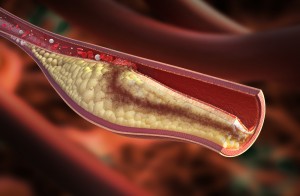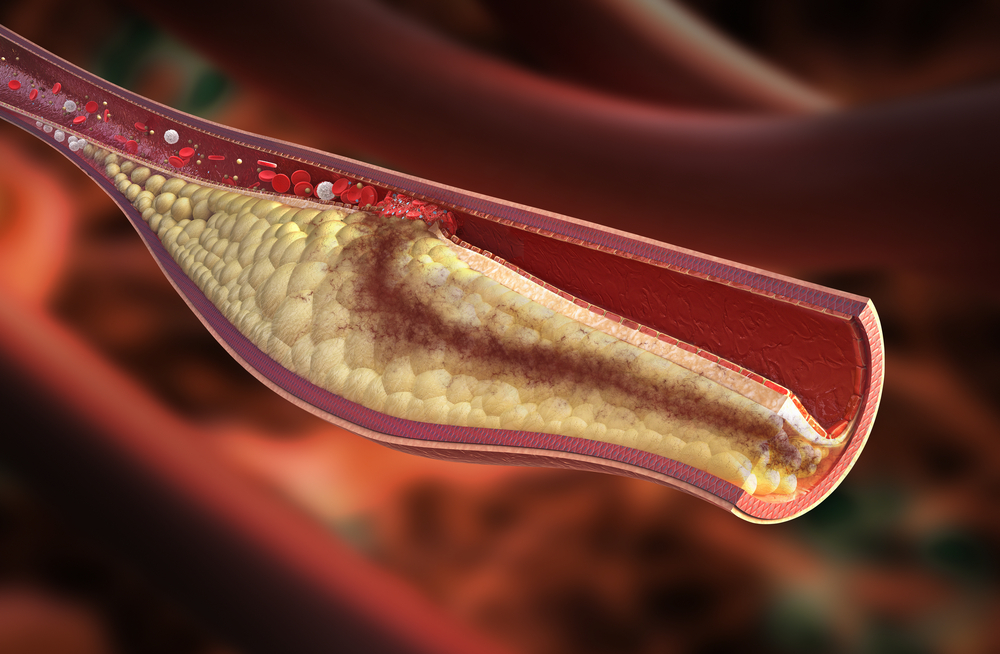 In a recent study titled “Serum Lipid Profile and Risk of Prostate Cancer Recurrence: Results from the SEARCH Database”, published in the Cancer Epidemiology, Biomarkers & Prevention journal, a group of researchers from Duke University School of Medicine have found that elevated levels of cholesterol and triglycerides after prostate cancer surgery, could be linked with an increased risk of cancer recurrence.
In a recent study titled “Serum Lipid Profile and Risk of Prostate Cancer Recurrence: Results from the SEARCH Database”, published in the Cancer Epidemiology, Biomarkers & Prevention journal, a group of researchers from Duke University School of Medicine have found that elevated levels of cholesterol and triglycerides after prostate cancer surgery, could be linked with an increased risk of cancer recurrence.
The team used the Shared Equal Access Regional Cancer Hospital (SEARCH) database to design a retrospective cohort analysis of 843 radical prostatectomy (RP) patients who had never used statins before surgery.
The link between cholesterol, LDL (good cholesterol), HDL (bad cholesterol), triglycerides and biochemical recurrence risk were then assessed. Furthermore, the researchers also analyzed these links in patients who suffered from dyslipidemia, an abnormal amount of lipids in the blood (either in high proportions or low).
The results showed that elevated serum triglycerides of 150 mg/dL or higher were associated with a 35% increased risk of prostate cancer recurrence. This risk was not associated with total cholesterol, LDL and HDL levels.
Nonetheless, if patients suffered from dyslipidemia, for each 10 mg/dl increase in cholesterol and HDL, there was a 9% increase in recurrence risk and a 39% reduced recurrence risk, respectively.
“These findings suggest that normalization, or even partial normalization, of blood fats among men with high cholesterol and triglycerides may reduce the risk of prostate cancer recurrence,” lead researcher Emma Allott, a postdoctoral associate at Duke University School of Medicine said in a HealthDay news report.
Dr. Anthony D’Amico, chief of radiation oncology at Brigham and Women’s Hospital in Boston, who was not involved in this study, explained, “This is a study of association, not causality”, noting that normal lipidic levels in the blood do not prevent cancer recurrence per se.
Furthermore, Dr. D’Amico does not recommend the use of statins to protect against prostate cancer, since a controlled clinical trial comparing statins, such as Lipitor, to placebo drugs in order to understand their effect in prostate cancer development and recurrence, is yet to be preformed.
“There might be ways to modify risk factors for prostate cancer recurrence that need to be studied,” he added. “But this study doesn’t prove that lowering cholesterol works.”
Nonetheless, these results add to the body of knowledge indicating that lipid levels should be further studied as an adjustable risk factor for prostate cancer recurrence.
“Understanding the role of high cholesterol as a modifiable risk factor for both heart disease and cancer, the most common causes of death, is of great importance,” Dr. Allott concluded.

